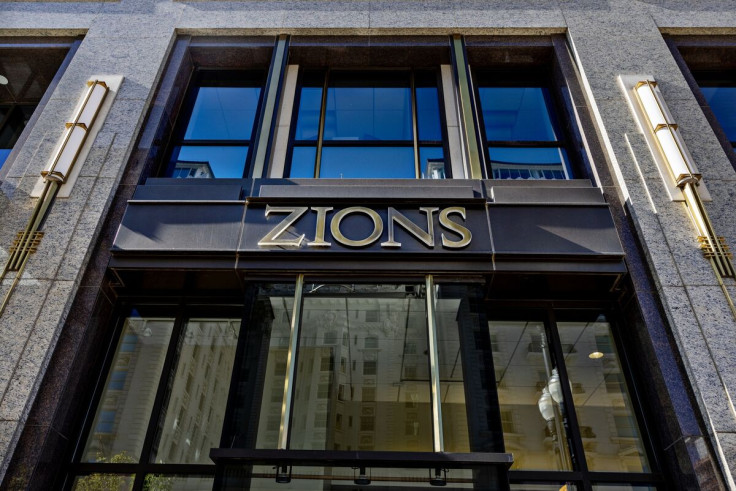US Regional Banks Rattle as Credit Fears Mount
Credit fraud and bad loans at US regional banks reignite fears of contagion, shaking investor confidence and global markets

A fresh wave of anxiety is rippling through global markets as US regional banks once again come under intense scrutiny.
Mounting credit fears, alleged loan fraud, and rising defaults have reignited memories of the 2023 regional banking crisis, sending bank stocks plunging and investors scrambling for safety.
Shares in Zions Bancorporation and Western Alliance Bancorp nosedived this week after both institutions disclosed multimillion-dollar losses tied to fraudulent or non-performing loans—renewing fears of contagion in a sector already vulnerable to higher interest rates and stretched credit quality.
According to Bloomberg, Zions reported a $50 million (£37.28 million) charge-off linked to two bad loans at its subsidiary, California Bank & Trust. Meanwhile, Western Alliance revealed it had filed a $100 million (£74.57 million) lawsuit in August against a borrower accused of fraud.
Echoes of SVB and Credit Market Fragility
The developments have drawn comparisons to the collapse of Silicon Valley Bank (SVB) in March 2023, which triggered widespread panic in the regional banking sector.
Analysts warn that while the current issues may be isolated, they highlight the fragility of credit markets after a prolonged period of elevated interest rates and aggressive expansion in private lending.
As reported by Morningstar, investors are particularly sensitive to signs of stress in the sector. Zions disclosed that the fraudulent borrowers had ties to multiple lenders, raising fears of broader exposure across the industry. Western Alliance's legal action further underscored the potential for systemic risk if such cases are not contained.
European Markets React to US Credit Jitters

The fallout has not been confined to the United States. European markets opened sharply lower on Friday, 17 October, as concerns over US regional banks spilt across the Atlantic. The FTSE 100 dropped 1.5%, while Germany's DAX fell 2% and France's CAC 40 declined 1.5%, before recovering some ground later in the session.
The sell-off was reportedly driven by fears of a credit bubble and renewed scrutiny of bank balance sheets. The bankruptcy of subprime auto lender Tricolour last month has added to the sense of unease, with investors questioning the resilience of smaller financial institutions.
Fitch Ratings Flags Mixed Outlook
Despite the turbulence, some analysts remain cautiously optimistic. A recent review by Fitch Ratings affirmed the credit ratings of 11 out of 12 major US regional banks, citing improved asset-liability management and capital planning. KeyCorp received a one-notch upgrade to A-/Stable, while Comerica's outlook was revised from Negative to Stable.
However, Fitch also acknowledged the challenges posed by a weakening macroeconomic environment and policy uncertainty. The full report is available via Fitch Ratings.
Commercial Real Estate and Private Credit in Focus
Beyond fraud, the broader issue of deteriorating credit quality, particularly in commercial real estate (CRE), continues to weigh on the sector.
As noted by FinancialContent, declining property values and tighter lending standards are placing pressure on regional banks' balance sheets. Many institutions are now reassessing their exposure to CRE and private credit markets, where risk-adjusted returns have come under scrutiny.
The combination of high interest rates, slowing economic growth, and isolated fraud cases has created a volatile environment for lenders and investors alike.
Outlook: Contained or Contagious?
While some market participants believe the current stress is manageable, others warn that the situation could escalate if more banks reveal hidden losses or fraudulent activity. The memory of SVB's collapse remains fresh, and any signs of contagion could prompt regulatory intervention or emergency liquidity measures.
For now, the focus remains on transparency and risk management. As recent reports suggest, investors have little tolerance for surprises. Even isolated incidents can spark outsized reactions in today's fragile market climate.
© Copyright IBTimes 2025. All rights reserved.





















